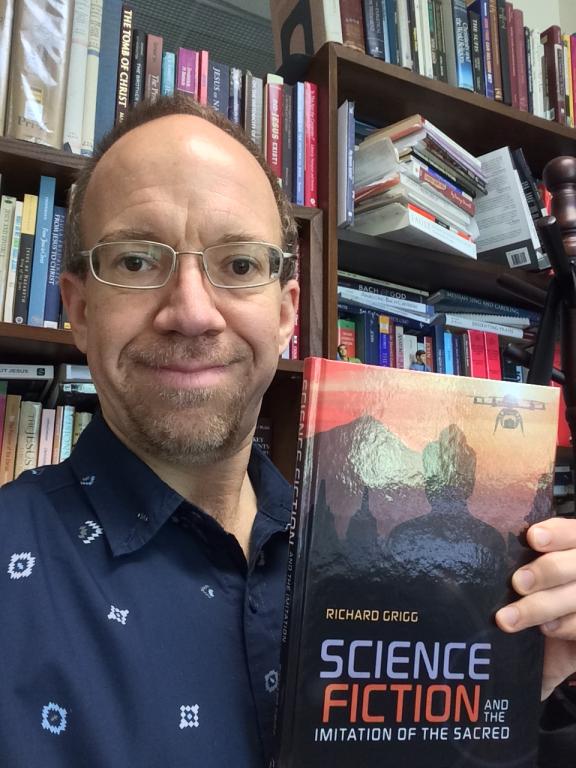I still recall when I first spotted a first very early mention of Richard Grigg’s forthcoming book Science Fiction and the Imitation of the Sacred. I shared a link, commenting on how interesting it looked. Someone left a comment under the link, asking why the title referred to “imitation” of the sacred, rather than simply the sacred.
Not long after, the publisher contacted me to ask for an endorsement of the book, and so I was delighted! Here’s what I wrote:
In Science Fiction and the Imitation of the Sacred, Richard Grigg explores the question of whether sci-fi can mediate a genuinely transformative experience of transcendence. Where most have been content to merely compare and contrast themes in religion and speculative fiction, Grigg brings impressive clarity and creativity to bear on the question of where sci-fi offers a pale shadow of that which historic human traditions about the sacred have offered – and where it might actually exceed those offerings, at least when considered within the framework of a postmodern secular outlook.
Let Grigg take you on an adventure to strange new worlds of challenging questions, seeking new and alien light on humanity’s quest for meaning, and you will find that his insightful probing in this book offers the reader an opportunity to understand and appreciate in new ways what the sacred has meant to human beings in the past, and might mean to us in the future.
The entirety of that doesn’t appear on the book’s back cover or dust jacket flap, of course. You can read the much shorter endorsement that is on the book itself on the publisher’s website.
The answer to that early commenter’s question is that the book is indeed about precisely the fact that science fiction regularly offers the quasi-sacred, something that seems at once both to emulate and yet to either deliberately distance itself from, or unintentionally fall short of, the offerings of classic expressions of the sacred. That isn’t articulated as a case for the alleged superiority of the “truly sacred,” but rather in terms of a nostalgia for something that humanity once fostered but which it has since let go of. I will leave it to readers to decide whether what science fiction offers is the best alternative to some of those no longer tenable or popular forms of sacred that we can embrace in our time. But the book certainly does an excellent job of framing the key issues and of exploring them in helpful and thought-provoking ways.
Finally, here I am holding my copy of Science Fiction and the Imitation of the Sacred, in my office, where you should just barely be able to see the faces of Capt. Kirk and Dr. McCoy looking over it…















